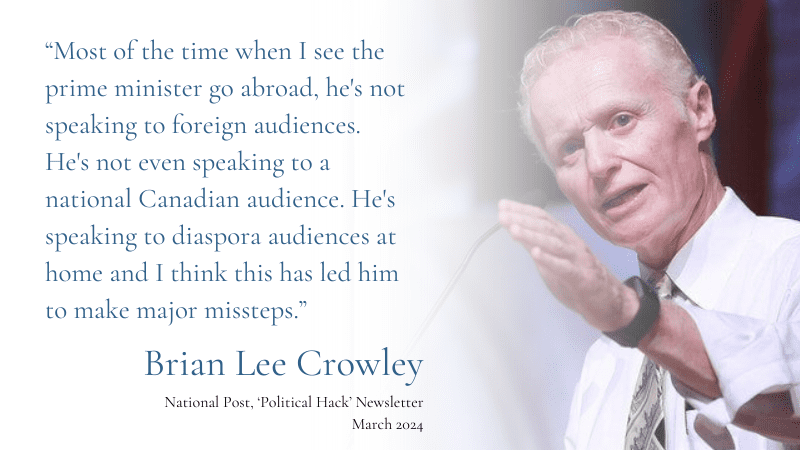The following is an excerpt from the National Post’s newsletter, Political Hack.
Stuart Thomson, Parliamentary bureau chief at the National Post, notes the influence of MLI’s work on the future of the Conservative party’s foreign policy.
In Canada, most right-of-centre foreign policy ideas are somewhere between the principled hawks and the realists, although Canada’s pragmatism (to put it kindly) tends to be enforced by its relative lack of capacity on defence and security.
A major foreign policy paper by Majumdar, the recently elected Calgary MP who could become an influential voice in caucus, might provide some clues on the Poilievre doctrine. The paper, co-written by Jeffrey Collins and Jonathan Berkshire Miller, argues that Canada’s foreign policy has been stagnant since the end of the Cold War and is ill-equipped to meet the challenge of a rising China and a belligerent Russia.
For Canada to make the jump from middle power to major power, the paper makes a series of recommendations, including a renewed and clear-eyed focus on the Indo-Pacific region, expansion of the Five Eyes intelligence alliance and strengthening cooperation with the U.K., Australia and New Zealand.
It’s also notable that the paper was published by the Macdonald-Laurier Institute, where Majumdar worked for years before getting elected for the Conservatives in Calgary.
Brian Lee Crowley, the managing director of MLI, said he’s always happy to see his organization’s ideas adopted by any political party or government.
Crowley said his biggest problem with the current government’s approach to foreign policy is that it too easily lets domestic diaspora politics dictate decisions on the world stage.
“Most of the time when I see the prime minister go abroad, he’s not speaking to foreign audiences. He’s not even speaking to a national Canadian audience. He’s speaking to diaspora audiences at home and I think this has led him to make major missteps,” said Crowley.
Among both Liberals and Conservatives that might be the dominant ideology on foreign policy: whatever wins the most votes at home. Majumdar’s paper argues that the country needs to change that and it will be up to Poilievre to decide how much principles will trump politics if he becomes prime minister. So far, he’s mostly stuck to his principles, but the real test will begin when the writ drops for an election campaign.






